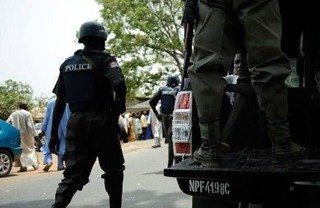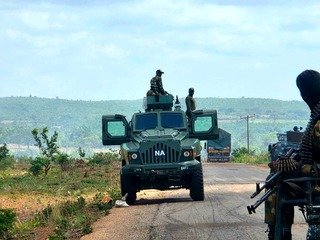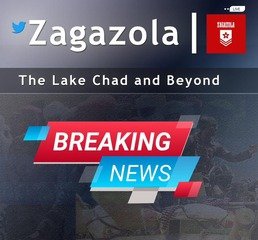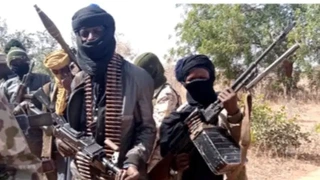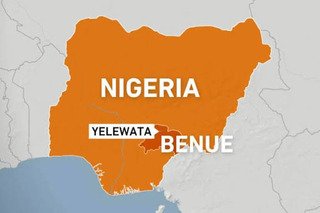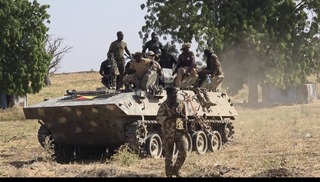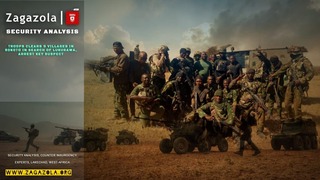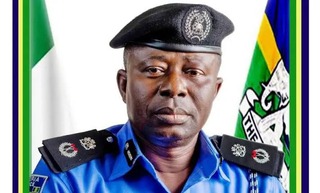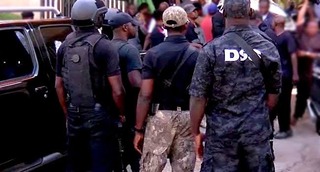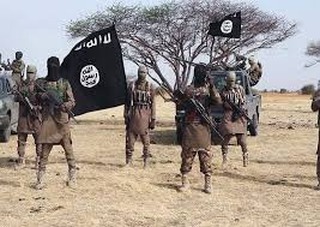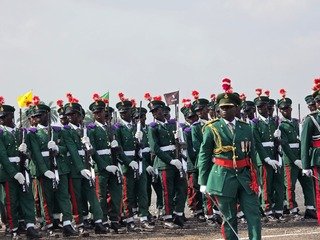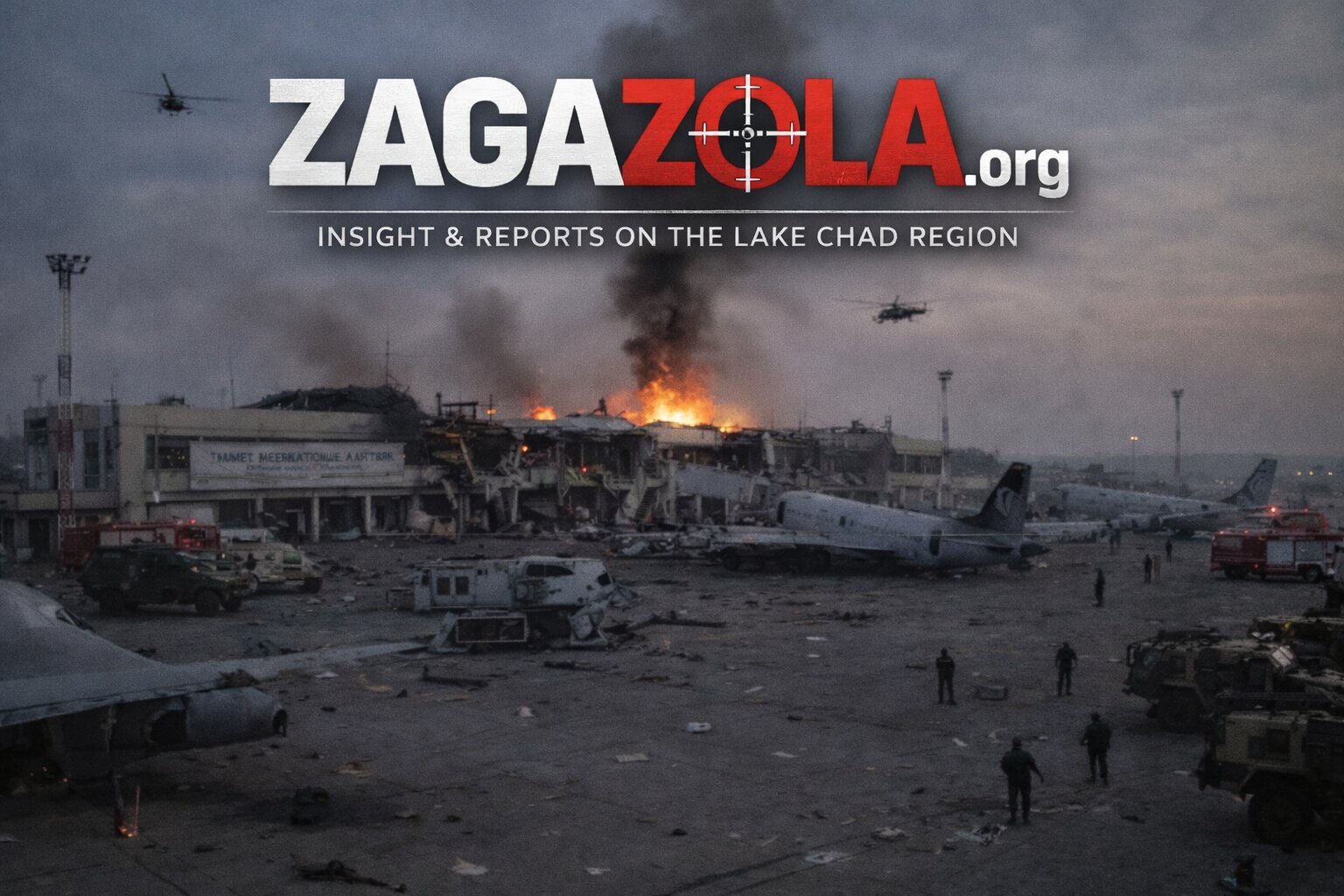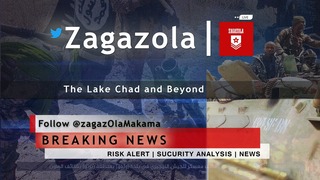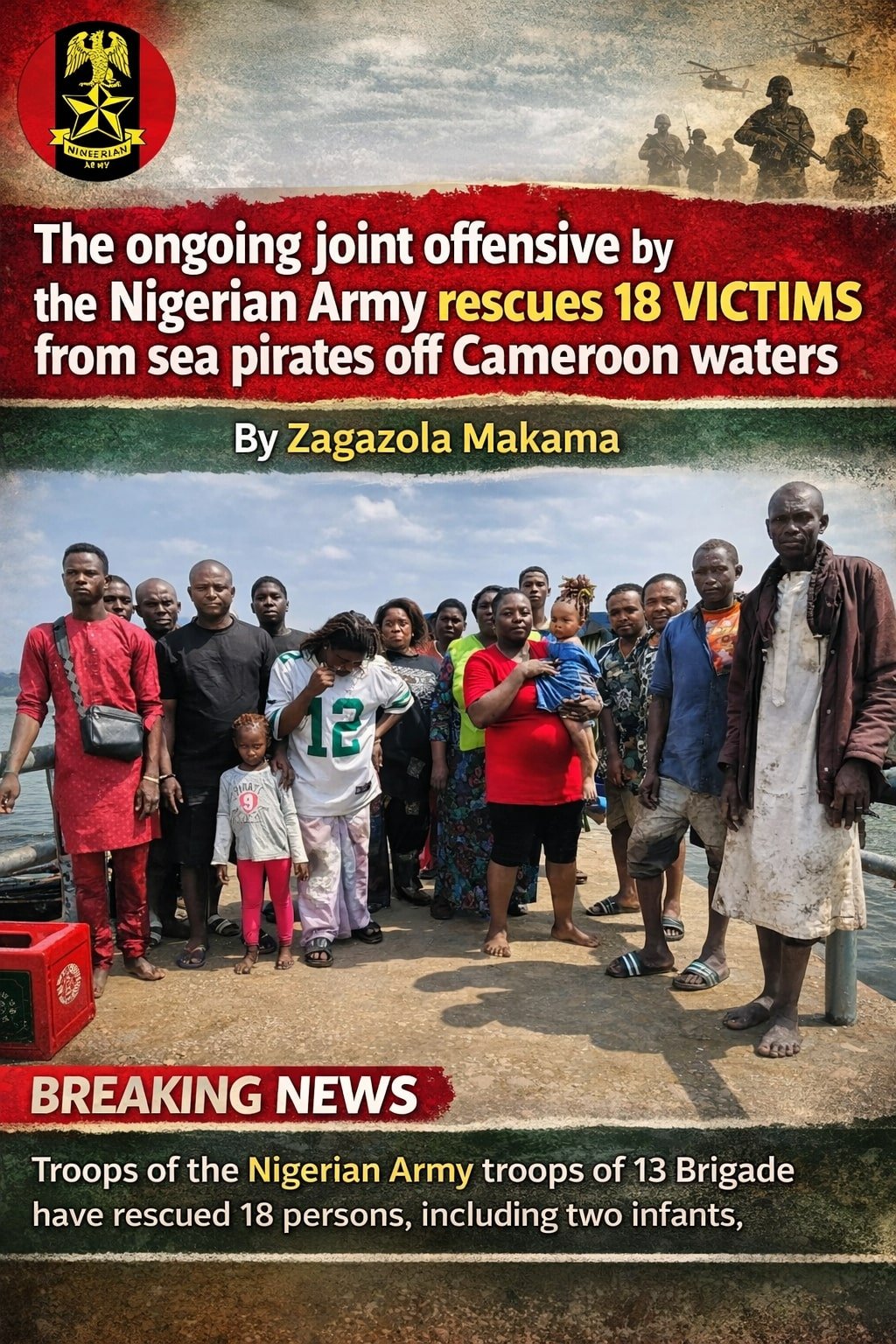Nigerian Army urged to review operations, recalibrate training to confront emerging threats
By: Zagazola Makama
Former Chief of Army Staff, Lt.-Gen. Faruk Yahaya (rtd), has called for a comprehensive review of Nigeria’s military training architecture and operational strategies to align with the evolving nature of national and global security threats.
Yahaya made this call while delivering a keynote address during the Nigerian Army Day Celebration (NADCEL) 2025 held at the Nigerian Defence Academy, Kaduna.
The former Army Chief emphasized that modern and future conflicts demand a deliberate shift in orientation, training methodologies, and warfighting tactics, stressing that Nigeria’s military must recalibrate its doctrinal foundation to maintain operational relevance.
“To effectively confront contemporary and future threats, the Nigerian Army must re-evaluate its training procedures and adopt proactive strategies that reflect the changing nature of warfare including asymmetric conflict, cyber threats, and ideological extremism,” he said.
Yahaya stressed the need for well structured and future-oriented training programs, starting from junior ranks to advanced command levels. He said emphasis must be placed on preparing soldiers not just to survive combat, but to operate decisively across a complex and dynamic battlespace.
“We must integrate counter-terrorism, military psychology, emotional intelligence, and even social media awareness into our training curriculum. These are no longer optional they are operational necessities,” he noted.
He also recommended a thorough review of the General Military Training Test (GMTT), stating that the current standards fall below the threshold required to meet present-day and anticipated operational demands.
To build capacity rapidly, Yahaya advised that the Army scale up its cooperation with advanced military institutions in countries like the United States, United Kingdom, and Pakistan, particularly in areas such as train-the-trainer programs, junior command, regimentation, and decentralized warfighting doctrine.
“Our non-commissioned officers (NCOs) must be equipped with the tactical, psychological, and leadership skills necessary to lead small units in combat. The future of warfare lies with agile, empowered small-unit operations,” he stressed.
According to Yahaya, Nigeria’s evolving threat landscape particularly the insurgency in the North East and cross-border terrorism in the Lake Chad region demands effective small-unit warfighting techniques, with an emphasis on mission-command philosophy and decentralized execution.
He said the Army must empower its NCOs to take initiative in the field and respond swiftly to real-time threats, particularly where commissioned officer shortages may hinder responsiveness.
“The principle of mission-command must become a doctrine. We cannot always wait for higher orders in fluid combat environments. Our NCOs must be competent and confident enough to take decisions in the field,” Yahaya explained.
Yahaya also highlighted the importance of a rigorous and disciplined recruitment system that upholds integrity at every stage, warning that any signs of weakness or deviation from the standard must be promptly addressed.
“Selection into the Nigerian Defence Academy and Depot NA must be thorough and uncompromising. We must be bold in weeding out bad eggs not just at entry, but throughout their careers. This vigilance is essential to maintaining a professional fighting force,” he said.
He concluded by reaffirming the need for a deliberate, systematic transformation of the Army’s training doctrine, recruitment standards, and command structure to ensure preparedness for future operational environments.
“The success of any military force lies in its ability to anticipate, adapt, and outmaneuver emerging threats. This requires recalibration, courage, and commitment at all levels of command,” Yahaya stated.


